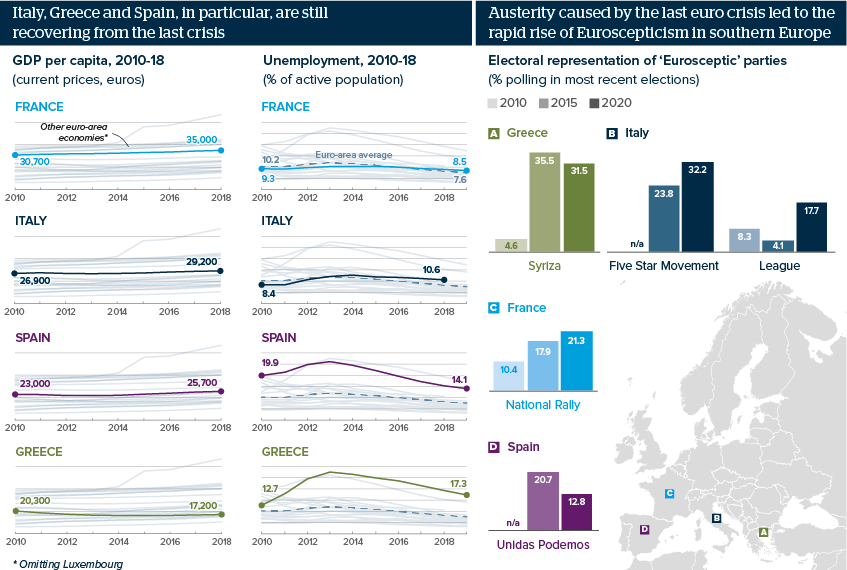COVID-19 will likely strengthen Euroscepticism
A prolonged recession would add to the politics of Euroscepticism, which has gained momentum over the past decade
Source: Eurostat, Insee
Outlook
Southern European economies are particularly vulnerable to COVID-19. They entered the crisis with very high debt-to-GDP ratios and are now experiencing more acute health and economic crises than others. They lack the capacity for the substantial fiscal stimulus needed for reconstruction, as borrowing from financial markets would be too expensive. Despite better economic performance, France shares the Eurosceptic trends seen in southern Europe.
The social and economic downturn will be much deeper in southern Europe, unless the EU facilitates cheap borrowing. This will polarise politics further and increase the chance that Eurosceptic parties get into government.
Impacts
- A prolonged recession risks triggering the collapse of fragile coalition governments in Spain and Italy.
- A lengthy recession would also increase public support for leaving the euro and/or the EU, especially in Italy.
- EU financial solidarity with the south could fuel Euroscepticism in the Netherlands, Finland and Germany, where parties oppose risk-sharing.
